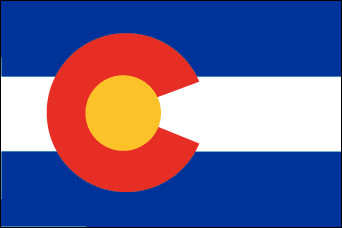
Steven Gutierrez
Among the most significant employment-related bills passed by the Colorado General Assembly during its 2019 legislative session was Colorado’s new Equal Pay for Equal Work Act (EPEWA). The Act, which will go into effect January 1, 2021, for all public and private employers in Colorado, imposes equal pay obligations extending beyond those of the federal Equal Pay Act (EPA). The EPEWA is intended to “ensure that employees with similar job duties are paid the same wage rate regardless of sex” and reflects the Colorado General Assembly’s response to findings that the wage gap between men and women has long persisted even after the federal EPA attempted to eliminate it nearly 60 years ago.
Why was the EPEWA enacted?
Many employee organizations have long contended that despite passage of the federal EPA in 1963—which was intended to remedy pay disparities based on sex a year before the federal Civil Rights Act of 1964—unlawful pay disparities have nonetheless persisted. Many have attributed the persistence to the federal EPA’s catch-all provision permitting wage disparities based on any “factors other than sex,” which advocates contend is too vague and permits wage disparities for too many reasons.
The Colorado General Assembly apparently agreed and in 2019 enacted the EPEWA in an attempt to more effectively close the pay gap. In particular, it noted that women in Colorado earn just 86 cents for every dollar earned by men and that Latinas earn just 53.5 cents and black women just 63.1 cents for every dollar earned by white men. The wage disparity results in Colorado women losing $400,000 to $1 million in income over a typical lifespan.
EPEWA’s mandates
The EPEWA applies to all public and private employers in Colorado, regardless of the number of employees they employ. It prohibits paying employees of one sex a “wage rate”—defined as all compensation, including hourly wages, salaries, and all other compensation—that is less than the wage rate paid to employees of a different sex for substantially similar work.
As noted above, the Colorado General Assembly was careful in defining exceptions to the equal pay mandate and did so in a manner that eliminated the catch-all “factors other than sex” exception available under the federal EPA. Specifically, the General Assembly decided that wage differentials between men and women would be permitted in Colorado only when they were based on:
- Seniority or merit systems;
- Systems measuring quality or quantity of production;
- The location where the work occurs;
- Work that requires travel; or
- Employees’ education, training, or experience, but only to the extent reasonably related to the work in question.
To take advantage of the specific exceptions to the EPEWA’s equal pay mandate, employers must also prove they “reasonably” relied on the specific exception they invoke, the exception accounts for the entire wage rate differential, and prior wage rate history wasn’t relied on in justifying the disparity in current wage rates.
The EPEWA also prohibits employers from asking about or relying on a prospective employee’s wage rate history to determine her wage rate. The provision is designed to eliminate the persistence of wage disparities when female employees move from one underpaying job to another.
In addition, the EPEWA prohibits retaliation when an employee invokes the Act on behalf of herself or others, and it prevents an employer’s interference with or intimidation of any person who inquires about, discloses, compares, or discusses the wage rate of an employee. The provisions are designed to protect employees who discuss and compare wage rates in an effort to determine if unlawful disparities exist.
Employers are also required under the EPEWA to make reasonable efforts to announce or post opportunities for promotions to all their employees on the same day (and before the promotion decisions are made), and are separately required to ensure that all job postings—both internal and external—disclose both the hourly or salary compensation for the job (or a range of the hourly or salary compensation) and a general description of all benefits and other compensation to be offered. Violations of the notice requirements can result in fines of $500 to $10,000 per violation.
Finally, the EPEWA also imposes new record keeping requirements designed to preserve evidence for any pay disparity lawsuits. Employers are required to keep records of job descriptions and wage rate histories for the duration of each employee’s employment, and for two years thereafter, to determine if there’s a pattern of wage discrepancy. If an employer doesn’t keep the records and is sued for alleged unlawful pay disparities, a judge may provide an “adverse inference instruction” to the jury, which is essentially an instruction that the jury may assume the missing records would have been favorable to the suing employee. Any missing records may also be used as evidence that the employer’s pay violations weren’t in “good faith,” which affects available damages (as discussed below).
Court or administrative actions
The EPEWA provides a private right of action allowing aggrieved employees to sue directly for up to three years of backpay for unlawful pay disparities, and separately allows employees to sue for an equal amount in “liquidated damages,” unless the employer can show its pay violations were in “good faith.” Aggrieved employees are also permitted to sue for their attorneys’ fees, reinstatement, promotion, pay increases, and other legal and equitable relief.
The Colorado Department of Labor and Employment (CDLE) is authorized by the Act to create a new administrative procedure to accept and mediate complaints under the Act. The CDLE is further authorized to provide legal resources to aggrieved employees. The director of the CDLE is empowered to enforce the Act’s job postings and record keeping requirements, and employers that violate the requirements are subject to fines ranging from $500 to $10,000 per violation, as noted above. Any person who claims to be aggrieved by an employer’s alleged failure to follow the postings and record keeping requirement may file a complaint with the CDLE within one year after “the person learned of the violation.”
Tips for employers
The EPEWA is expected to incentivize the filing of new wage disparity lawsuits, particularly those not previously available under the federal EPA. Advance audits to uncover any illegal pay disparities are critical for Colorado employers. Because the EPEWA takes effect on January 1, 2021, and will apply to any “violations that occur on or after” its effective date, you should plan now for implementation.
In addition to conducting audits to uncover any illegal pay disparities, you should work to ensure you have adequate systems in place for identifying future job openings—including internal promotional opportunities—and ensuring that notice of all such job openings contain the required wage and compensation information. You should also ensure opportunities for internal promotion are announced or otherwise posted internally to all employees on the same calendar day and in
advance of promotion decisions.
Finally, you should modify your equal employment opportunity (EEO) policies to clearly reflect that you don’t permit illegal pay disparities and should additionally train your hiring managers not to solicit or rely on wage rate histories when interviewing job applicants.

